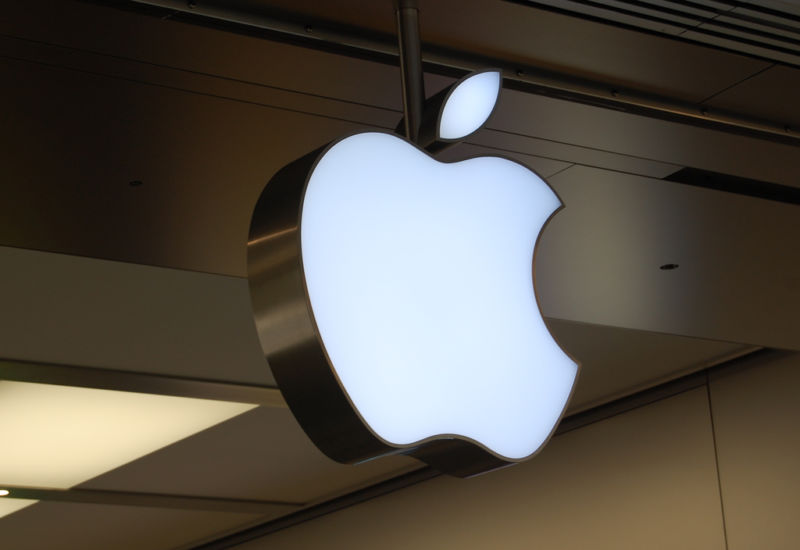Spotify’s EU antitrust complaint could be a serious threat to Apple

Apple is abusing its control over the iOS App Store to give its own music streaming service an unfair advantage over competitors, Spotify argued in a Wednesday filing with the European Commission.
“Apple has introduced rules to the App Store that purposely limit choice and stifle innovation at the expense of the user experience,” writes Spotify founder and CEO Daniel Ek. “After trying unsuccessfully to resolve the issues directly with Apple, we’re now requesting that the EC take action to ensure fair competition.”
For years, Apple has pressured Spotify to use Apple’s In-App Purchase service to collect subscription fees. Spotify has resisted, largely because Apple takes a whopping 30-percent commission. Over time, Spotify says, Apple has tightened up its app store rules to make it more and more difficult for app makers to direct users to payment methods outside the Apple ecosystem.
In 2014, Spotify finally buckled and gave Apple’s service a try. Spotify raised its prices by 30 percent—from €9.99 a month to €12.99 a month—to cover Apple’s fees.
But then, in 2015, Apple introduced a Spotify competitor, Apple Music. Apple charged Spotify’s old price of €9.99 a month ($9.99 a month in the US), which put Spotify in a difficult position. It’s hard to make a profit competing against an Apple-branded service if you also have to hand 30 percent of your revenue over to Apple.
“Spotify probably has a pretty good case in Europe,” argues Chris Sagers, a legal scholar and antitrust expert at the Cleveland-Marshal College of Law. Apple’s efforts to prevent Spotify from bypassing Apple’s in-app purchasing rules “looks like garden variety anticompetitive exclusion to me,” Sagers said. “I think it will to the European Commission as well.”
Apple takes 30 percent of subscriptions and bars workarounds
This is hardly the first time a major American technology company has faced antitrust scrutiny in Europe. Microsoft, of course, faced accusations of anticompetitive conduct in both the United States and Europe in the 1990s and early 2000s. More recently, European regulators have slapped Google with multi-billion-dollar fines for favoring its own products in search results and for its Android licensing policies.
But so far Apple has not attracted significant attention from European competition regulators (Apple was charged with organizing a cartel of book publishers by US antitrust authorities a few years ago). One likely reason: Apple only controls 20 to 25 percent of the European smartphone market. And competition law tends to focus on companies with a more dominant market position.
Indeed, Sagers argues, American regulators would probably lose if they tried to bring Spotify’s case against Apple in US courts. But the law is different in the European Union, Sagers says. And European regulators might be receptive to Spotify’s arguments.
A big reason is that Apple has been so open about its determination to prevent Spotify from circumventing Apple’s in-app purchasing rules. Not only does Apple ban apps like Spotify from selling content to consumers without using Apple’s payment system, the company also bans workarounds—like directing customers to an order form on Spotify’s website.
Indeed, when Spotify complained about Apple dragging its feet approving a new version of Spotify’s app back in 2016, Apple openly admitted that disputes over the payment service were a sticking point.
“I would be happy to facilitate an expeditious review and approval of your app as soon as you provide us with something that is compliant with the App Store’s rules,” Apple general counsel Bruce Sewell wrote in a 2016 letter to Spotify. “Ever since the in-app purchase feature was made available, App Store rules have prohibited developers from redirecting customers inside of an app to purchase digital content or subscriptions outside of the app to avoid paying Apple’s standard commission.”
Sewell said Apple had rejected Spotify’s app because “the in-app purchase feature had been removed and replaced with an account sign-up feature clearly intended to circumvent Apple’s in-app purchase rules. This feature exists only for the purpose of avoiding having to pay Apple for your use of the App Store by emailing customers within hours, directing them to subscribe to Spotify on its website.”
European authorities are unlikely to look kindly on this kind of behavior, Sagers argues.
“Apple taking exclusionary steps to keep developers paying high fees to get their software onto people’s phones looks anticompetitive,” he told Ars. “The European Commission has seemed receptive to that kind of theory. And it looks worse when the firm also just happens to be selling competing products.”
With all that said, we don’t know how the European Commission will respond to Spotify’s request. “The Commission has received a complaint by Spotify, which we are assessing under our standard procedures,” a spokesperson told Wired.
https://arstechnica.com/?p=1473109